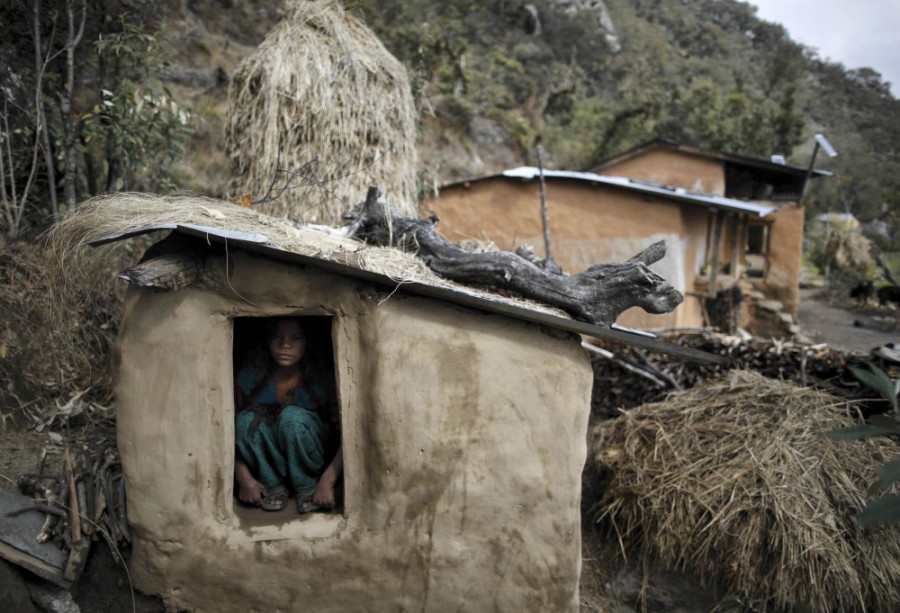Opinion
Banishing women to “period huts” is a national shame
Young girls and women losing their precious lives to a deadly superstition is distressing.
The world has progressed by leaps and bounds, and technology has opened a whole new frontier. But in Nepal, as recently as last week, a young woman lost her life maintaining a primitive tradition. Twenty-one-year-old Pabitra from Achham died in her chhaugoth or menstrual hut—a tiny shack made of mud or rock where women are required to stay while having their period—falling victim to the harsh elements.
Although it is a crime to force a menstruating woman into seclusion, punishable by up to three months in jail, the law has yet to make a dent in the tradition. And at this point, young girls and women losing their precious lives to a deadly superstition that believes women to be impure during their period—something that is, scientifically speaking, a biological process during their reproductive life—has become a national shame.
More than 90 percent of the women in the remote western mountain districts of Achham, Bajura, Doti and Bajhang continue to practice Chhaupadi—either due to societal pressure or their own wish. It’s not a surprise that in all the aforementioned districts, the literacy rate for women is less than satisfactory. In Achham, for example, women’s literacy rate stands at 37 percent. Similarly, in Bajura it is 22 percent. Education plays a big part in helping people distinguish right from wrong. It also allows people the agency to speak for themselves. But regrettably, women in Sudurpaschim Province are missing out, and as a corollary, continue to fall prey to a social ill. If numbers and reports are anything to go by, most of the villages in Achham, Bajura, Doti and Bajhang have already been declared ‘Chhaupadi-free’. But beyond statistics, the reality on the ground tells us something else.
Between 2011 and 2015, as many as 31 of the 75 then village development committees in Achham—a hill district in Sudurpaschim Province—were declared Chhaupadi-free. The Chhaupadi-free campaign was launched by various non-governmental organisations and social organisations with the support of the government. In Bajhang, all five Chhaupadi sheds at Jagera in Saipal Rural Municipality were demolished when the local unit was declared Chhaupadi-free in 2018. But by May 2019, women were found rebuilding the Chhaupadi sheds at Jagera in Saipal Rural Municipality. The reason: After the huts were destroyed, menstruating women were sent to live in caves which, according to them, were even worse.
The idea is not to destroy the sheds and put them in caves, but to end the seclusion and discrimination. Sadly, neither law nor awareness drives have been effective in making that happen. What’s more, be it local representatives or rights activists, anyone who seems firm in their drive to get rid of Chhaupadi are often villainised. To the extent, they are even considered a threat to society. And this is what makes the issue more complicated altogether.
Uprooting such a deeply entrenched culture requires changing the mindset of the people. This warrants a holistic approach that requires educating not just the students and teachers, but the parents, the faith healers and community health workers. It will definitely take a long time too, but the key nonetheless, lies in sustaining efforts.
***
What do you think?
Dear reader, we’d like to hear from you. We regularly publish letters to the editor on contemporary issues or direct responses to something the Post has recently published. Please send your letters to [email protected] with "Letter to the Editor" in the subject line. Please include your name, location, and a contact address so one of our editors can reach out to you.




 18.12°C Kathmandu
18.12°C Kathmandu









